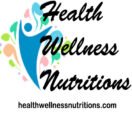The Basics of Nutrition: A Simple Guide to Fueling Your Body 🥦
Nutrition can seem overwhelming. With so much conflicting information—fad diets, superfoods, and endless “dos and don’ts”—it’s easy to feel lost. But at its core, nutrition is simple: it’s about giving your body the fuel it needs to function, thrive, and feel its best.
This guide will break down the fundamentals of a healthy diet, helping you build a positive and sustainable relationship with food.
The Building Blocks of a Healthy Diet
Think of food as the building material for your body. To build a strong and resilient structure, you need a variety of high-quality materials. These are your essential nutrients.
1. Macronutrients: Your Primary Fuel
Macronutrients are the nutrients your body needs in large amounts to create energy and build tissue.
Carbohydrates: Your body’s main source of energy. Opt for complex carbs like whole grains, fruits, and vegetables, which provide sustained energy and fiber. Limit refined carbs like white bread and sugary snacks, which cause energy spikes and crashes.
Proteins: Essential for building and repairing muscles, skin, and organs. Think of protein as the building blocks. Good sources include lean meats, fish, eggs, beans, lentils, and nuts.
Fats: Crucial for brain health, hormone production, and nutrient absorption. Focus on healthy fats found in avocados, nuts, seeds, and olive oil. Limit saturated and trans fats found in processed foods.
2. Micronutrients: The Spark Plugs
Micronutrients are the vitamins and minerals your body needs in smaller amounts, but they are absolutely critical for countless bodily functions, from immune support to bone health.
Vitamins: Found in a wide array of fruits and vegetables (e.g., Vitamin C in oranges, Vitamin A in carrots).
Minerals: Found in various foods (e.g., calcium in dairy and leafy greens, iron in red meat and spinach).
A diverse diet rich in colorful fruits and vegetables is the best way to ensure you’re getting a broad spectrum of these vital nutrients.
Navigating the “Good vs. Bad” Food Debate
One of the biggest pitfalls in nutrition is labeling foods as strictly “good” or “bad.” This can create guilt and an unhealthy relationship with food.
A healthier approach is to think in terms of nutrient density.
Nutrient-dense foods are those that pack a lot of vitamins, minerals, and other beneficial compounds into a small amount of calories (e.g., a handful of spinach or an apple).
Energy-dense foods are those that are high in calories but low in nutrients (e.g., a bag of potato chips or a soda).
The key is balance. It’s okay to enjoy energy-dense foods in moderation, as long as the majority of your diet consists of nutrient-dense options.
Simple Tips for Better Nutrition
Prioritize Whole Foods: Build your meals around foods that are as close to their natural state as possible—fresh fruits, vegetables, whole grains, and lean proteins.
Stay Hydrated: Water is a forgotten nutrient! It’s essential for digestion, metabolism, and energy. Aim to drink water throughout the day.
Listen to Your Body: Pay attention to your body’s hunger and fullness cues. Mindful eating—slowing down and savoring your food—can help you reconnect with these signals.
Plan Ahead: Meal prepping or simply planning your meals for the week can help you make healthier choices and avoid last-minute, unhealthy grab-and-go options.
Don’t Fear the Fats: Healthy fats are your friends. Including them in your meals can keep you feeling full and satisfied.
Nourishing your body is an act of self-care. It’s not about perfection or restriction, but about making choices that make you feel energized, vibrant, and well. Start small, be consistent, and enjoy the journey of discovering what makes your body feel its best.
